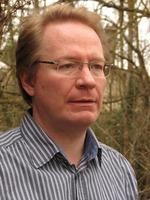January 11th, 2018
 The current spreading of multi-scale and multi-process integrative simulations is challenging for the philosophy of science. What is the epistemic function of such a simulation? What does it really show? On what grounds? Is it an experimental design or a theoretical construction? To contribute to these debates, I suggest analyzing the ways computer simulations (CSs) are using symbols. To this end, I will present an extensionalist analysis of CSs. This approach puts the emphasis not on languages nor on models, but more precisely on symbols, on their extensions, and on their various ways of referring to data or theories. It shows that the chains of reference of symbols in a CS are multiple and of different kinds, especially in integrative simulations. Once these chains are recognized and understood, the associated processes of calibration and validation can be further explained. It finally becomes possible to explain the reasons why some complete reduction of the role of CSs to classical epistemic functions such as “experience”, “experiment”, or “theoretical argument” has become doubtful.
The current spreading of multi-scale and multi-process integrative simulations is challenging for the philosophy of science. What is the epistemic function of such a simulation? What does it really show? On what grounds? Is it an experimental design or a theoretical construction? To contribute to these debates, I suggest analyzing the ways computer simulations (CSs) are using symbols. To this end, I will present an extensionalist analysis of CSs. This approach puts the emphasis not on languages nor on models, but more precisely on symbols, on their extensions, and on their various ways of referring to data or theories. It shows that the chains of reference of symbols in a CS are multiple and of different kinds, especially in integrative simulations. Once these chains are recognized and understood, the associated processes of calibration and validation can be further explained. It finally becomes possible to explain the reasons why some complete reduction of the role of CSs to classical epistemic functions such as “experience”, “experiment”, or “theoretical argument” has become doubtful.
Franck Varenne is Associate Professor of philosophy of science at the University of Rouen (Normandy – France) and researcher at GEMASS (CNRS – UMR 8598). His research focuses on the history and epistemology of formal models and computer simulations in contemporary science, especially in biology and geography. He has published around 55 articles and chapters. He has also published 8 books and co-edited 3 collective books.


